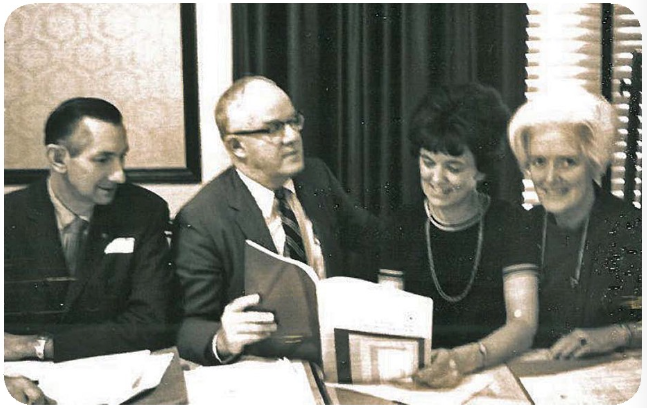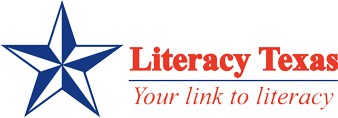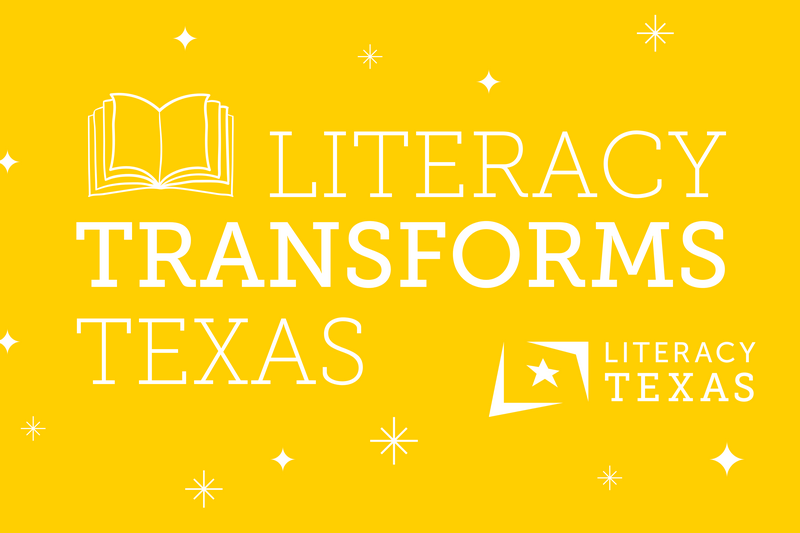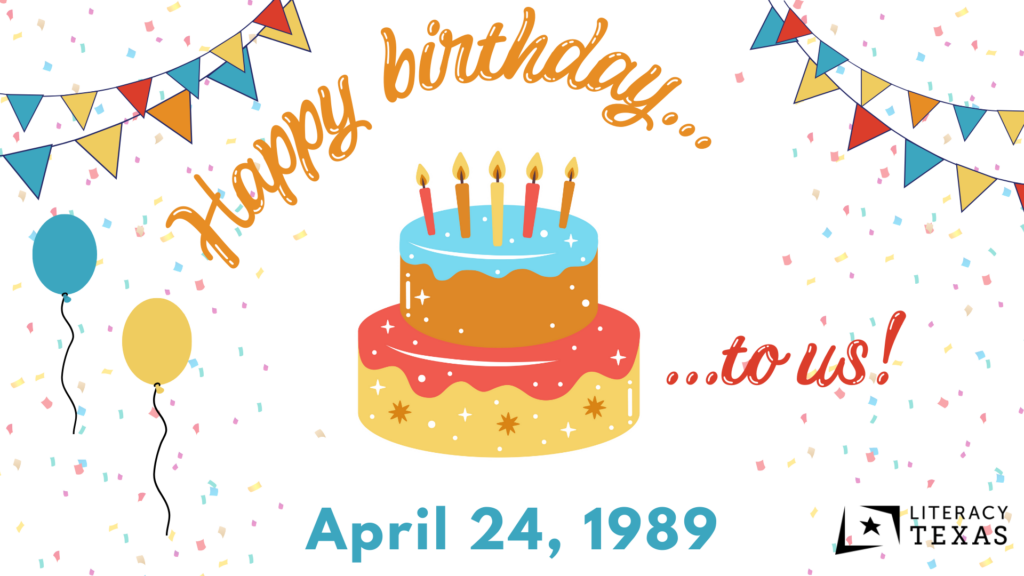We’re celebrating our birthday!
Will you support our work for Texas families with a birthday gift?
In the 1960s, many people across the United States were realizing that low literacy was an issue that needed addressing. A host of programs were created, many run by volunteers, to help people learn to read.
Most of the focus back then was on reading and writing for English speakers, though some programs also understood that many people also needed English conversation and literacy skills and some classes included a focus on those skills as well.

Fred Morris, Robert Laubach, Priscilla Gipson, and Bernice Smith, all from Texas, meet at the first National Affiliation for Literacy Advance (NALA) conference in St. Louis, MO, in 1969.
Frank Laubach founded Laubach Literacy in 1955, and Ruth Johnson Colvin founded Literacy Volunteers of America in 1962. (In 2002, Laubach Literacy merged with Literacy Volunteers of America to form ProLiteracy Worldwide.) Thousands of the volunteer literacy programs that grew up across the United States were based in these organizations, many following the Laubach Literacy method and focusing on concepts of “each one teach one”, and “if you can read, help someone who can’t”. These volunteer-based programs highlighted the immense value of volunteerism, and the power of personal attention and small-group relationships for adult learning.
Volunteer tutor-learner pair Josephine Weatherford and Geraldine Thompson meet in the Dallas Library for reading classes. In this video from October 1989, they talk about why the classes are important to them.
Click on the picture above to see the video (1 min 45 seconds).
SOURCE: KXAS-TV (Television station : Fort Worth, Tex.). [News Clip: Portrait J. Weatherford], video, October 14, 1989; Fort Worth, Texas. (texashistory.unt.edu/ark:/67531/metadc904976/: accessed April 22, 2022), University of North Texas Libraries, The Portal to Texas History, texashistory.unt.edu; crediting UNT Libraries Special Collections
Understanding that, as in other states, there were thousands of Texas adults who had fallen through the cracks of the education system and could neither read nor write, in the early 1980s Margaret Eisenbeck proposed the first adult literacy program in Austin to the Texas Education Agency. Leveraging a small grant with sweat equity, she created the Travis County Adult Literacy Council. As the first Executive Director, she later expanded the program to become Texas Adult Literacy Laubach.
On April 24, 1989, Texas Adult Literacy Laubach (TALL) incorporated in Austin, Texas, as a 501(c)(3) non-profit organization of the national Laubach Literacy Action. TALL’s purpose was to address the needs of established and evolving literacy programs through communication, education, and public awareness.
In August 2000, a joint task force of Literacy Volunteers of America and Laubach Literacy Action formed the Texas Association of Adult Literacy Councils (TAALC). On August 24, 2001, the TAALC Task Force agreed to operate under the name of TAALC and to retain the 501(c)3 status of TALL.
In February 2008, the Board of Directors voted to update the name of the organization to “Literacy Texas”. The new name reflected a new mission of inclusion to partner with city and county libraries, community colleges, universities, school districts, reading coalitions, community-based literacy councils, and faith-based literacy programs.

While much has changed since the 1960s, when adult literacy had such a focus, some things haven’t changed enough. Low adult literacy is still a challenge in Texas – you can read some sobering facts here – and for a variety of reasons, progress can be slow.

Literacy Texas believes that every person in Texas has the right to literacy. Our work today focuses on getting adult and family literacy providers the training and resources they need, to help people to the highest possible standard. Literacy Texas has a particular focus on community-based organizations, or CBOs. Read more about what we do here.
Get Texas literacy updates
Join our mailing list so you don’t miss any news:
- Local and national literacy news
- Conference updates
- Regional symposia
- Best of Texas
- Advocacy
- …more!
Checked/updated 4/23/25





